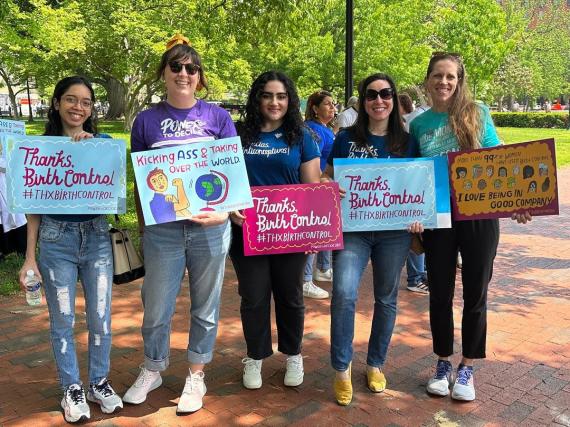Parents, Young People, and the Exam Room
As champions for young people, many providers such as pediatricians, family medicine doctors, and family nurse practitioners, can be an excellent resource for both parents and young people looking for support. Some parents may not know where to begin when talking about sexual and reproductive health, others may prefer to have a provider talk to their kids instead, and some may want to make sure all of their bases are covered by having a provider supplement conversations they’ve already begun. No matter the motivation, the provider’s office is a great place for conversations about reproductive well-being.
Before Your Visit
While taking about sex with a young person can often feel overwhelming, your child’s annual visit to a health care provider can serve as a reminder that it’s not one big, scary conversation, but a series of talks that progress over time. This not only allows young people to take in the new information on their own time but allows for age-appropriate discussions to happen more organically.
Talking about sexual health isn’t always about talking. As someone outside of the family dynamic, providers can help remind parents and families to listen. When they’re comfortable young people often ask many, many questions, and when parents and providers take the time to listen to what’s being asked, they can identify themes that may help guide future conversations.
During Your Visit
With years of medical training, many providers will be a great resource for questions related to sex and developmental milestones like puberty. Often, as young people grow, what they are concerned about is if they’re normal. Hearing about what to expect as they grow and about their own progress from a medical professional can be very reassuring and normalizing.
During the course of the visit the provider may ask a lot of questions, but that doesn’t mean they’re being nosy. They’re actually ensuring that they give your young person the best care possible by fully understanding their concerns, where they’re at developmentally, or if they’re sexually active yet. At some point during the visit you may be asked to step out of the room, and that’s perfectly normal. By leaving the room your young person can talk in a setting that may make them more likely to ask or answer questions that will ultimately allow them to receive appropriate care.
Providers also have a detailed understanding of other topics such as confidentially. State laws around confidentially vary and can affect the types of sexual and reproductive health care, substance abuse, and mental health services minors can access without a parent or guardian’s consent. If you’d like to discuss another important, sensitive subject such as consent, providers can help talk to begin and even guide the conversation.
However, providers don’t always have all the answers either! If a question comes up that a provider doesn’t know the answer to, they’re well-equipped to research the answer. If the visit allows for it, they may even be able to take the time to learn the answer in real time alongside you and your young people.
After Your Visit
Talking and listening don’t end when families leave the provider’s office. Giving young people the power to decide if, when, and under what circumstances to get pregnant and have a child is powerful. Giving young people the information, access, and opportunity to make decisions that align with their values and where they want their lives to go is powerful. Talking is powerful. So, start early and talk often. Parents, you’re more powerful than you think.



